Coronavirus: Tube bailout needed 'by end of day', Sadiq Khan says
- Published
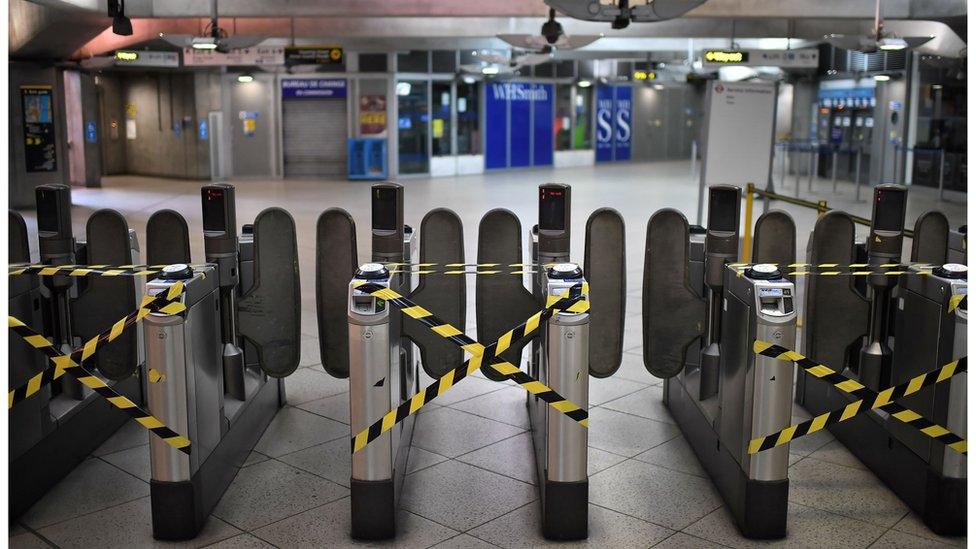
Transport for London must cut its Tube and bus networks without emergency funding, the mayor warned.
Transport for London (TfL) will be forced to reduce services unless it receives a government grant by the end of the day, Sadiq Khan has claimed.
Without financial support, the transport body must cut its Tube and bus networks, the mayor of London said.
Mr Khan said TfL had been negotiating with the government for about six weeks.
Transport Secretary Grant Shapps said he was "optimistic of having a solution".
The BBC has been told TFL - which previously said it expects to lose £4bn this year due to the impact of coronavirus - is negotiating a bailout worth several billion pounds.
Bosses warned it would declare itself bankrupt without emergency finance by the end of Thursday.
The Transport Secretary also said he was encouraging Mr Khan to get bus and train capacity back to 100% in order to avoid overcrowding on services.
When asked whether the solution might entail higher fares, Mr Shapps replied it was "important to provide a rescue package for TfL" but a 'right balance' needs to be struck.
The prime minister's official spokesman said negotiations were at an "advanced stage".
Speaking on LBC Radio the Labour mayor said: "At a time when the government is wanting us to increase services to get into the recovery phase, we might be required to cut services because the Government is failing to give us the grant support we need.
"TfL is legally treated like a local authority, which means we have to be able to balance the books.
"If we don't get the deal done today, the [chief financial officer] of TfL has legal duties that he has to follow."
If no deal is agreed, TfL said, it would have to publish an unbalanced budget under the requirements of the Local Government Act.
It would also be forced to issue a Section 114 notice - the equivalent of a public body going bust - which would ban it from spending any new cash.
An emergency board meeting would be called, after which the government would have to step in or services could be wound-down, TfL said.
Speaking at Thursday's Downing Street press briefing, transport secretary Mr Shapps said: 'We don't know what the long-term will be.
"But in the short-term trains and buses will continue to run."
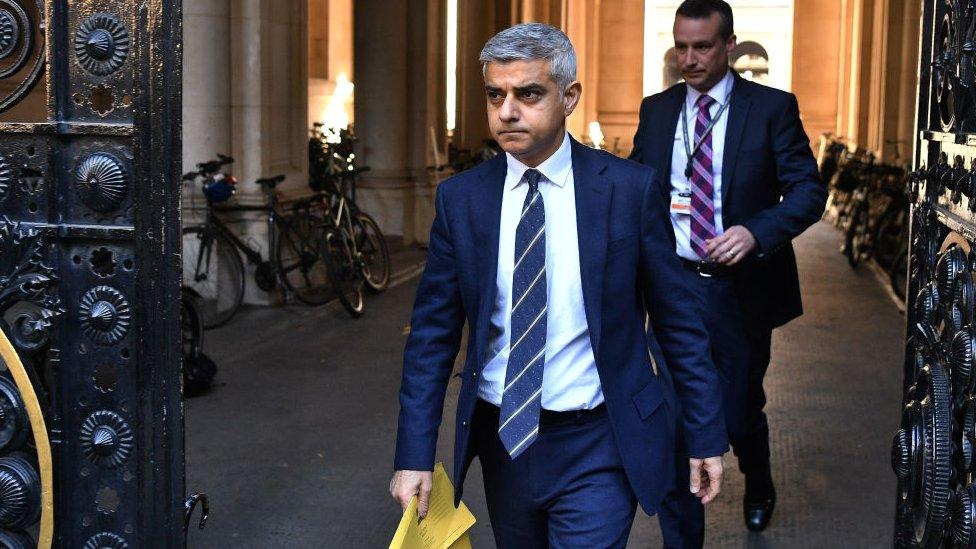
Sadiq Khan said TfL must "balance the books"
TfL - which runs the Underground, buses, and some overground rail services - has already used £1bn of its reserves to keep the network running.
It costs £600m a month to keep the network running on its current reduced service.
The lockdown has led to a 95% cut in people using the Tube compared to this time last year.
The number of bus passengers has also dropped, by 85%, and customers no longer have to tap-in to pay for rides as part of measures to protect drivers.
Most TfL services are still running, but 7,000 staff - about 25% of the workforce - have been furloughed to cut costs.
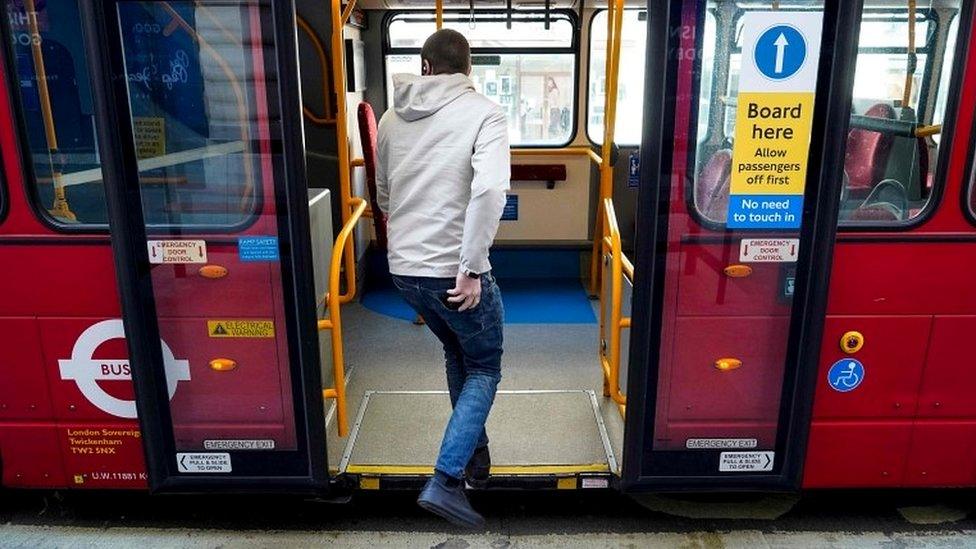
Travellers using London buses do not currently need to pay
Conservative candidate for mayor of London, Shaun Bailey, said: "Sadiq Khan has failed in his job as chairman of Transport for London.
"Coronavirus highlighted existing structural flaws within TfL's balance sheet - it is not the primary cause.
"It is simply wrong for Sadiq Khan to then use Londoners - and key workers, making critical journeys - as collateral to get a bailout to cover his mismanagement and bad decision making."
A spokesman for 10 Downing Street said: "It is a commercial discussion. We remain in close contact with the mayor and TfL to look at how we can support them.
"Our priority is on reaching an agreement which keeps critical services running for those passengers who must use public transport to get work, ensuring we keep London moving safely."

A SIMPLE GUIDE: How do I protect myself?
LOOK-UP TOOL: Check cases in your area
MAPS AND CHARTS: Visual guide to the outbreak

- Published12 May 2020
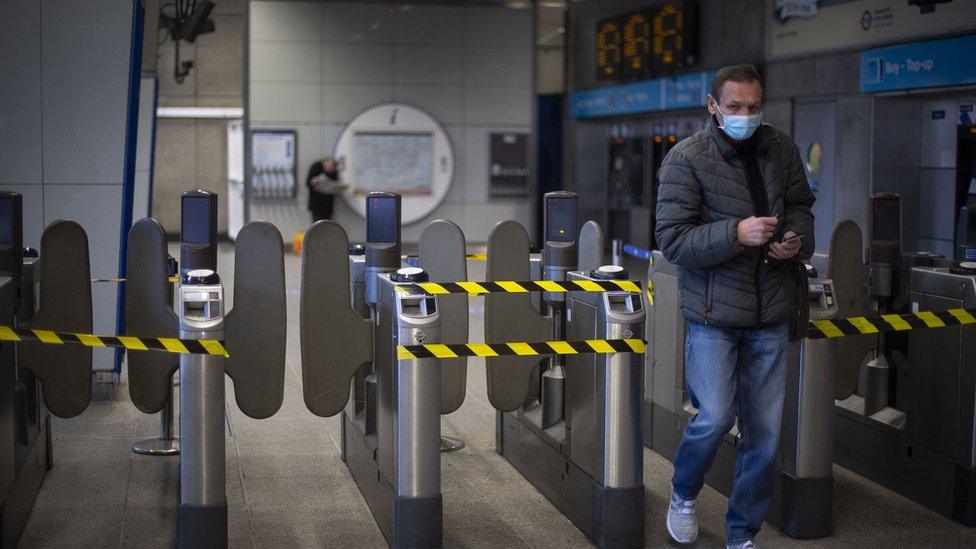
- Published22 April 2020
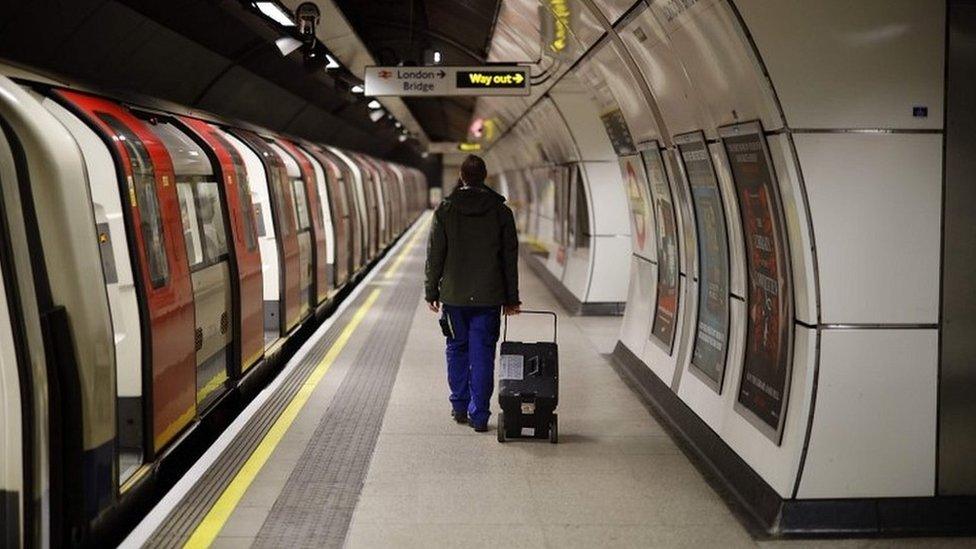
- Published21 April 2020
- Published25 March 2020
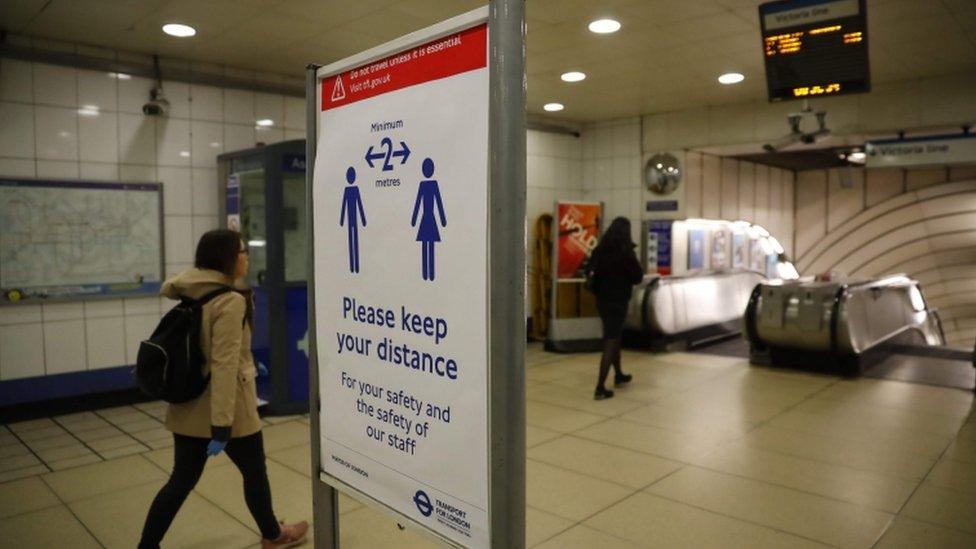
- Published16 March 2020
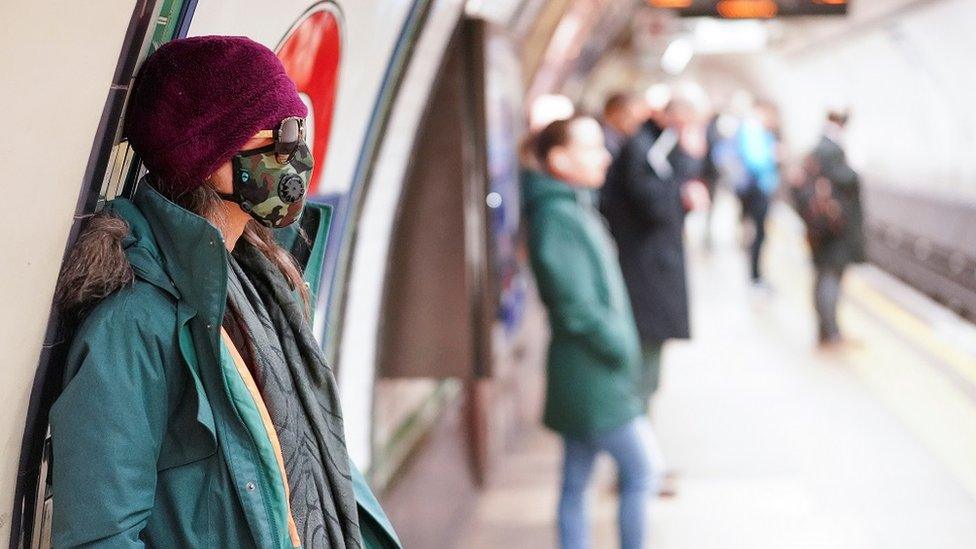
- Published20 March 2019